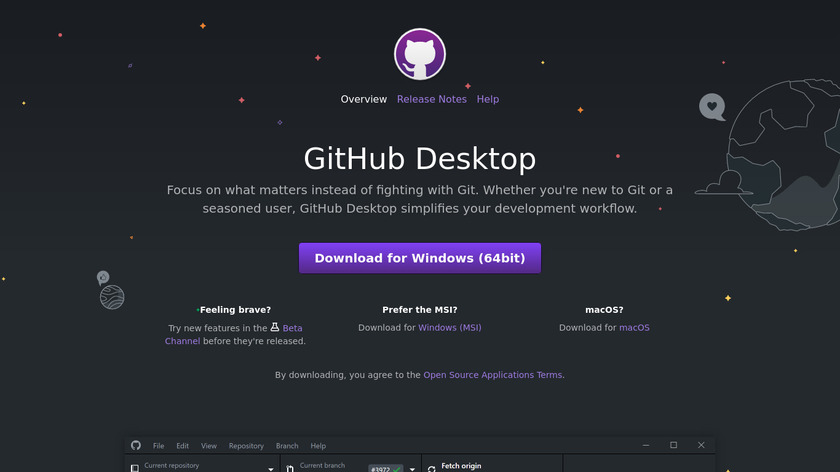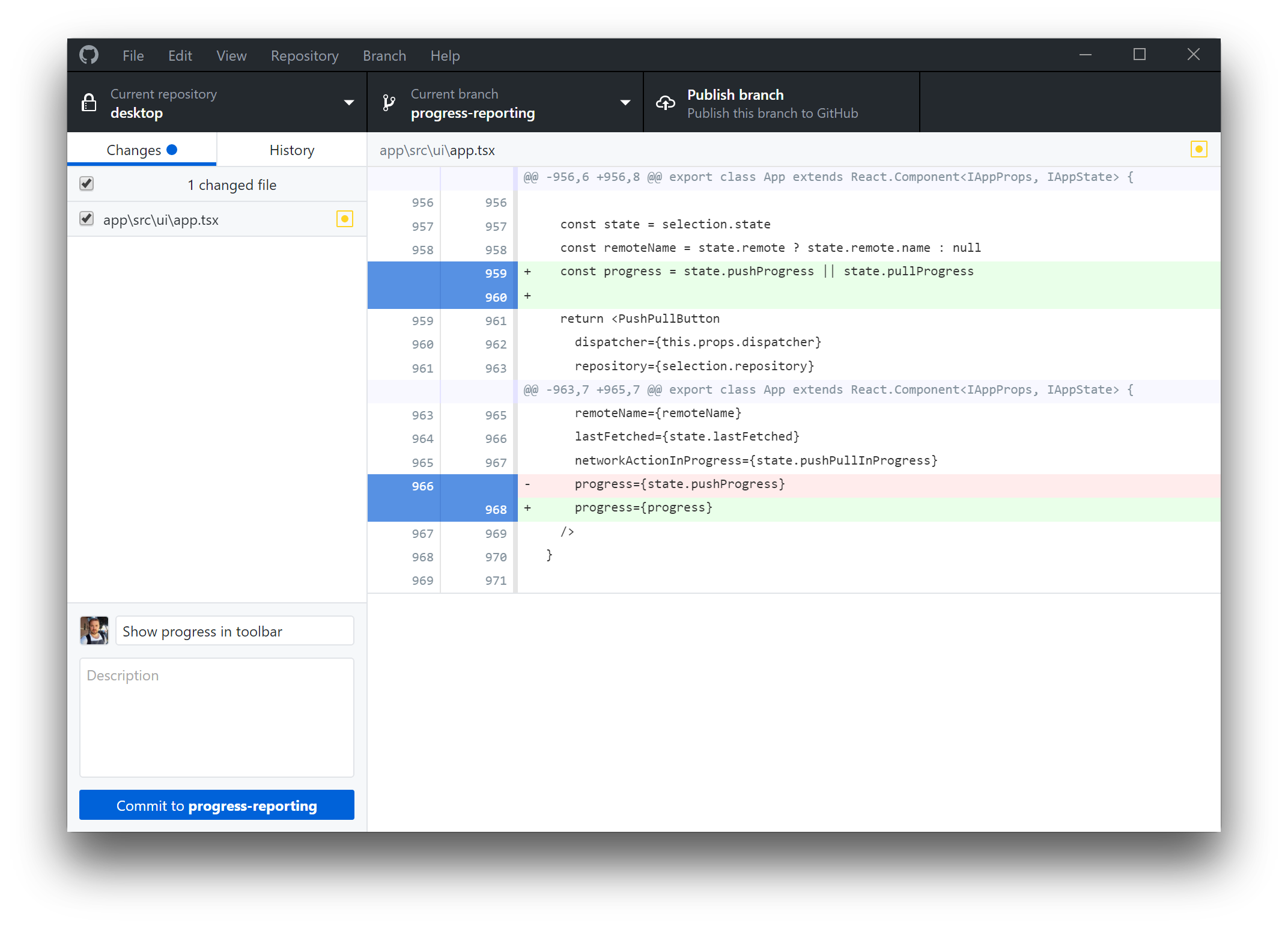

- #Github desktop ubuntu .exe
- #Github desktop ubuntu install
- #Github desktop ubuntu download
- #Github desktop ubuntu free
You can now find an IPFS icon in the status bar: Wait for the installation to finish and click Finish:

#Github desktop ubuntu install
Select the install location for the application. Select whether you want to install the application for just yourself or all users on the computer.
#Github desktop ubuntu .exe
exe for the latest version of IPFS Desktop: Go to the IPFS Desktop downloads page (opens new window)įind the link ending in. Or, if you'd rather use a package manager, check this list of third-party packages maintained by the IPFS community. IPFS Desktop is built using the Electron framework (opens new window), so the application should work wherever Electron works. To install IPFS Desktop, follow the specific instructions for your operating system. CLI Tutor Mode helps you learn IPFS commands as you go.OS-wide support for IPFS files and links (on Mac, Windows, and some Linux flavors) automatically hands off links starting with ipfs://, ipns:// and dweb: to be opened in IPFS Desktop.Explore the "Merkle Forest" of IPFS files with a visualizer that lets you see firsthand how example datasets stored on IPFS - or your own IPFS files - are broken down into content-addressed pieces.

#Github desktop ubuntu download
Quick download for CIDs, IPFS paths, and IPNS paths - choose Download.Easily manage the contents of your node with a familiar file browser that offers quick shortcuts for renaming/moving/pinning files and folders, previewing many common file formats directly in IPFS Desktop, copying content IDs or shareable links to your clipboard, and more.

Quickly import files, folders, and screenshots to IPFS in a variety of convenient ways, including drag-and-drop and (for Windows) right-clicking a file/folder's icon.Start your node at system startup (Mac/Windows) and control it from your OS using the convenient menubar/system tray menu.And either way, IPFS Desktop will automatically check for updates. If you don't have a node, it'll install one for you. If you already have an IPFS node on your computer, IPFS Desktop will act as a control panel and file browser for that node. Use IPFS Desktop to get acquainted with IPFS without needing to touch the terminal - or, if you're already experienced, use the powerful menubar/taskbar shortcuts alongside the command line to make your IPFS workflow faster. Discussion and advice welcome! Meld - visual diff and merge tool: compare files, directories, and version controlled projects.IPFS Desktop bundles an IPFS node, file manager, peer manager, and content explorer into a single, easy-to-use application. WinMerge would be my recommendation on windows, Meld on everything else. (Just copied the text of both into Meld and looked for genuine differences, in case you'd like to have an easy way for the future.) Thanks for doing all that you do here! For interactivity, of course, I use the terminal and Vim, such as lazygit and tig, and fugative and gitgutter (or equivalents). So, I use Meld for viewing complex diffs (:silent ! meld. Integrating Git and (Neo)Vim: LazyGit + Fugitive + MergeTool for maxiumum efficiency Beyond Compare is also mentioned but the developer website doesn’t inspire much confidence. Are the third party binaries trustworthy? Meld seems to get mentioned a lot but the website syas it is not officially supported on OS X. I’ve done my research as below but have some reservations about the options I found. I’m looking for recommendations for the best visual diff and merge tool available on macOS. Problem loading project after changing my pcĮither setup something more suited to this kind of thing (like a GitHub repo) or copy the project folder to a USB stick/email it to yourself/etc.īest visual diff and merge tool on macOS?
#Github desktop ubuntu free
My advice would be to use a solid git client like Git fork (paid + free trial), the GitHub app (free), or Git Kraken (free for non commercial, or paid), and watch some tutorials. I think the hard part with GUI git apps is that all the advanced functionality is. It's great at checking out and syncing branches, and doing (partial) commits. The Github Desktop is criminally underrated in my opinion Yes, it's pretty underfeatured and lacks all the advanced features, but I consider that a plus.


 0 kommentar(er)
0 kommentar(er)
